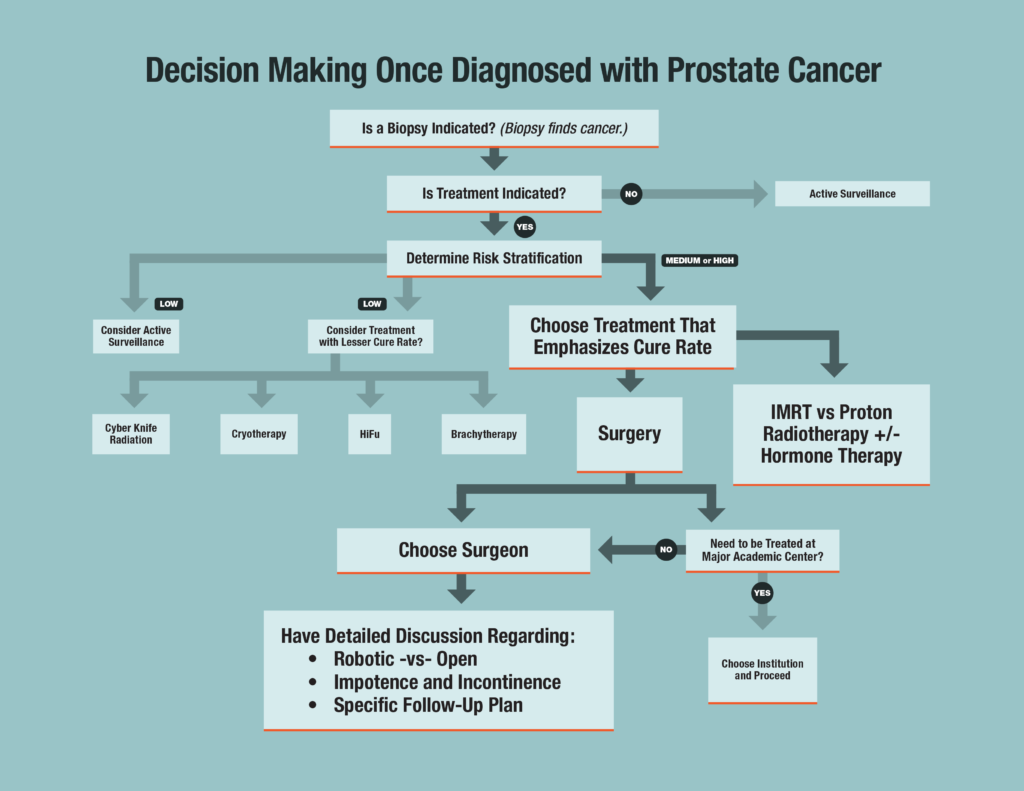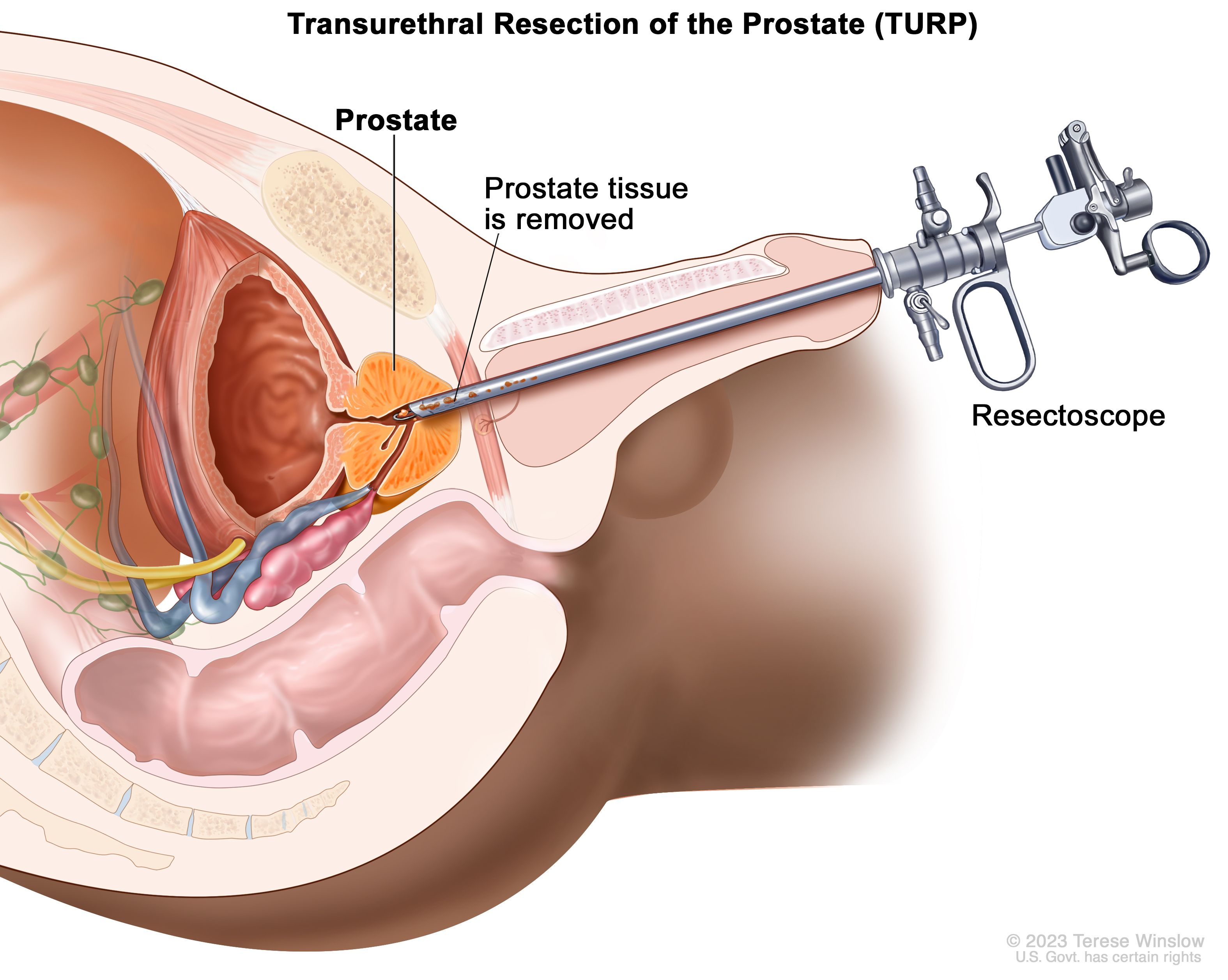What Does Best Prostate Cancer Doctor Do?
Wiki Article
Prostate Cancer Therapy: Surgical and Non-Surgical Approaches Explained
When confronted with a prostate cancer cells medical diagnosis, the array of treatment options can seem frustrating. From surgical interventions to non-surgical methods, each approach lugs its own set of factors to consider and advantages. The decision-making process includes weighing variables such as efficiency, prospective side results, and long-lasting end results. Recognizing the nuances of medical methods, like robotic-assisted surgical procedure, and non-surgical treatments such as radiation treatment and hormonal agent therapy, is essential for patients and their households. This thorough introduction aims to shed light on the complexities of prostate cancer therapy, providing understandings into the ins and outs of each approach to equip people in making notified selections regarding their wellness.Surgical Treatment Options
When thinking about surgical therapy choices for prostate cancer, clients and healthcare service providers usually weigh the threats and benefits linked with different procedures,. One usual medical strategy is radical prostatectomy, which involves the removal of the entire prostate gland. This procedure is usually advised for clients with localized prostate cancer and supplies the capacity for a remedy. Radical prostatectomy can lead to side results such as urinary system incontinence and erectile disorder.
Another medical choice is robotic-assisted laparoscopic prostatectomy, a minimally intrusive treatment that uses a robotic system to help the surgeon in removing the prostate. This strategy can lead to much less blood loss, much shorter hospital keeps, and much faster recuperation times contrasted to conventional open surgical procedure. It also brings the danger of problems such as infection and injury to bordering body organs.
Inevitably, the choice of surgical treatment for prostate cancer depends on different factors including the stage of the cancer cells, the person's general health, and their preferences regarding potential adverse effects and recuperation times. Consulting with a multidisciplinary group consisting of urologists, oncologists, and radiation oncologists can assist patients make educated decisions concerning one of the most appropriate surgical strategy for their private case.

Non-Surgical Therapy Choices
Taking into consideration options to medical interventions, non-surgical therapy alternatives for prostate cancer cells deal people added opportunities for handling the illness while lessening prospective medical risks. One non-surgical strategy is Active Security, where clients with low-risk prostate cancer are monitored carefully via regular check-ups, blood examinations, and biopsies, without undergoing instant treatment. This method intends to avoid unneeded therapy and its associated adverse effects, such as urinary incontinence and erectile disorder.One more non-surgical alternative is Radiation Treatment, which makes use of high-energy rays to kill cancer cells (Best prostate cancer doctor in Mumbai). This therapy can be delivered on the surface utilizing an equipment (Exterior Beam of light Radiation) or internally through tiny contaminated pellets put near the tumor (Brachytherapy) Radiation therapy can be used as a primary treatment or in combination with other therapies, such as hormone therapy
In Addition, Hormonal Agent Therapy is a non-surgical method that intends to minimize the degrees of male hormonal agents (androgens) in the body, as these hormonal agents can fuel the development of prostate cancer cells. By reducing or blocking androgen levels, hormone therapy can reduce cancer development and relieve signs in sophisticated cases.
Robotic-Assisted Surgical Treatment for Prostate Cancer Cells

Among the crucial advantages of robotic-assisted surgical procedure for prostate cancer cells is its capability to reduce the danger of complications and adverse effects commonly connected with open surgical treatment, such as blood loss, pain, infection, and extended recuperation times. People undergoing robotic-assisted procedures usually experience shorter medical facility stays, much less postoperative discomfort, and faster return to regular activities. In addition, the minimally invasive nature of robot surgical treatment commonly results in smaller sized incisions, leading to enhanced cosmetic results and lowered scarring for individuals. Overall, robotic-assisted surgery represents an innovative strategy to prostate cancer cells therapy that integrates technological developments with medical competence to maximize individual end results.
Radiation Therapy for Prostate Cancer
Making use of sophisticated radiation innovation, radiation therapy plays an essential function in the extensive therapy of prostate cancer cells. Radiation therapy uses high-energy radiation to ruin cancer cells and diminish tumors. It is a typical treatment alternative for prostate cancer, either as a main treatment or in combination with surgery, hormonal agent treatment, or radiation treatment.There are 2 main kinds of radiation therapy used for prostate cancer: exterior light beam radiation treatment (EBRT) and brachytherapy. In EBRT, a maker supplies radiation from outside the body to the prostate. This treatment is normally provided over a number of weeks, with day-to-day sessions lasting just a few mins (best prostate cancer doctor). Brachytherapy entails positioning contaminated seeds or resources straight into the prostate near the cancerous cells. These seeds emit radiation that eliminates the cancer cells over time.
Radiation treatment for prostate cancer cells is very efficient, with high cure prices, specifically for local cancer cells. It is additionally an important option for patients that may not be suitable candidates for surgical treatment. Like any type of treatment, radiation treatment may have adverse effects, such as urinary system troubles, tiredness, and skin inflammation, but these are typically short-lived and convenient.
Hormonal Agent Therapy for Prostate Cancer
Hormonal agent therapy is a typically made use of therapy strategy for prostate cancer monitoring. Prostate cancer is frequently sustained by the man hormone testosterone. Hormone treatment, also called androgen deprivation treatment, intends to reduce testosterone levels in the body or block the hormonal agent's impacts on the prostate cancer cells, thus slowing down the disease's progression. This therapy is particularly effective in innovative phases of prostate cancer, where surgery or radiation treatment may not be sufficient.There are different kinds of hormone treatment for prostate cancer cells, including drugs that reduced testosterone degrees (such as luteinizing hormone-releasing hormone agonists and antagonists), or medications that obstruct testosterone from reaching cancer cells (like anti-androgens) Hormone treatment can be utilized alone or in combination with other treatments like radiation therapy, go right here depending upon the stage and aggressiveness of the cancer cells.
While hormone treatment can effectively regulate prostate cancer cells growth, it may feature negative effects such as warm flashes, loss of sex drive, impotence, and osteoporosis - best prostate surgeon in Mumbai. Regular monitoring and discussions with medical care carriers are critical to handle these side impacts and make sure the treatment's effectiveness
Verdict
In conclusion, the treatment options for prostate cancer consist of non-surgical and medical approaches such as robotic-assisted surgical treatment, radiation therapy, and hormonal agent therapy. Each technique has its own advantages and dangers, and the selection of treatment depends upon numerous factors such as the stage of cancer cells and overall health and wellness of the individual. It is necessary for individuals to go over these choices with their doctor to establish the most suitable strategy for their specific circumstance.
Utilizing innovative radiation innovation, radiation treatment plays an essential role in the comprehensive therapy of prostate cancer cells. It is an usual therapy alternative for prostate cancer cells, either as a main therapy or in combination with surgery, hormonal agent therapy, or chemotherapy.
Radiation therapy for prostate cancer cells is very effective, with high cure prices, especially for localized cancer cells.Hormone therapy is a commonly made use of treatment approach for prostate cancer cells management.In why not try this out final thought, the therapy alternatives for prostate cancer include medical and non-surgical methods such as robotic-assisted surgical treatment, radiation therapy, and hormone therapy.
Report this wiki page